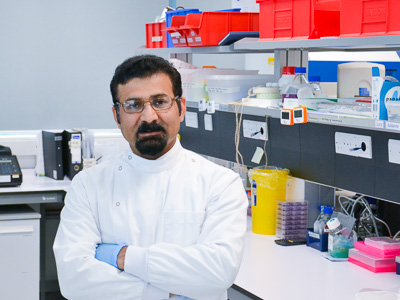What kinds of important research would a future bioscientist be engaged in?
So many things! There are lots of things we can do to de-risk the human population: 75% of emerging and re-emerging infections originated from animals. So, and it seems obvious to say, but simply minimising our exposure to those animals is a huge step. We need to study how to achieve that. Studying the long-term impacts of things like Covid (i.e. long-Covid) is something that we can only learn through time. That is going to require future scientists because of the time durations involved. And again, exploring the impacts of climate change, which brings animals into closer contact with humans than before. This is usually food scarcity because of deforestation, or the fact that we are building ever more in regions of the planet where these animals have their habitats. We need scientists to work in an interdisciplinary way to mitigate these hugely complex issues.
How has the way we investigate these challenges changed over the past few years?
The way industry and academia works together has really changed. Before Covid-19 it was hard to commercialise the work we were doing, whereas now we find it much easier to find private sector partners. Same with the way that governments work together. It's now easier to conduct research across geographies with people in different countries working together rather than in competition, or in secrecy. We had a global problem in Covid, and we needed a global solution.
What makes you hopeful for the future?
Humans learn the hard way, so we are quite slow at learning sometimes, but we are very quick at forgetting and unlearning things. In my lifetime we had the swine flu epidemic and we learned things from that, but then that subsided and we forgot all the things we'd learned; we didn't implement them when Covid struck. And then hot on the heels of Covid was M-pox and we already didn't do the things we had learned from Covid. But I'm hopeful that we can keep learning and maybe forget a little less!
But what makes me really hopeful is Data and AI. This is the area where a future scientist will make an impact.* Using big data and AI to analyse population-level trends will enable us to predict and mitigate impacts.
I would say to future generations of scientists, look for innovative big data solutions to guide better therapeutics and interventions. That is where the future lies.
*Subsequent to this interview, we saw this happening in the real world where AI was used to find a new antibiotic for the bacterium A. Baumannii.



